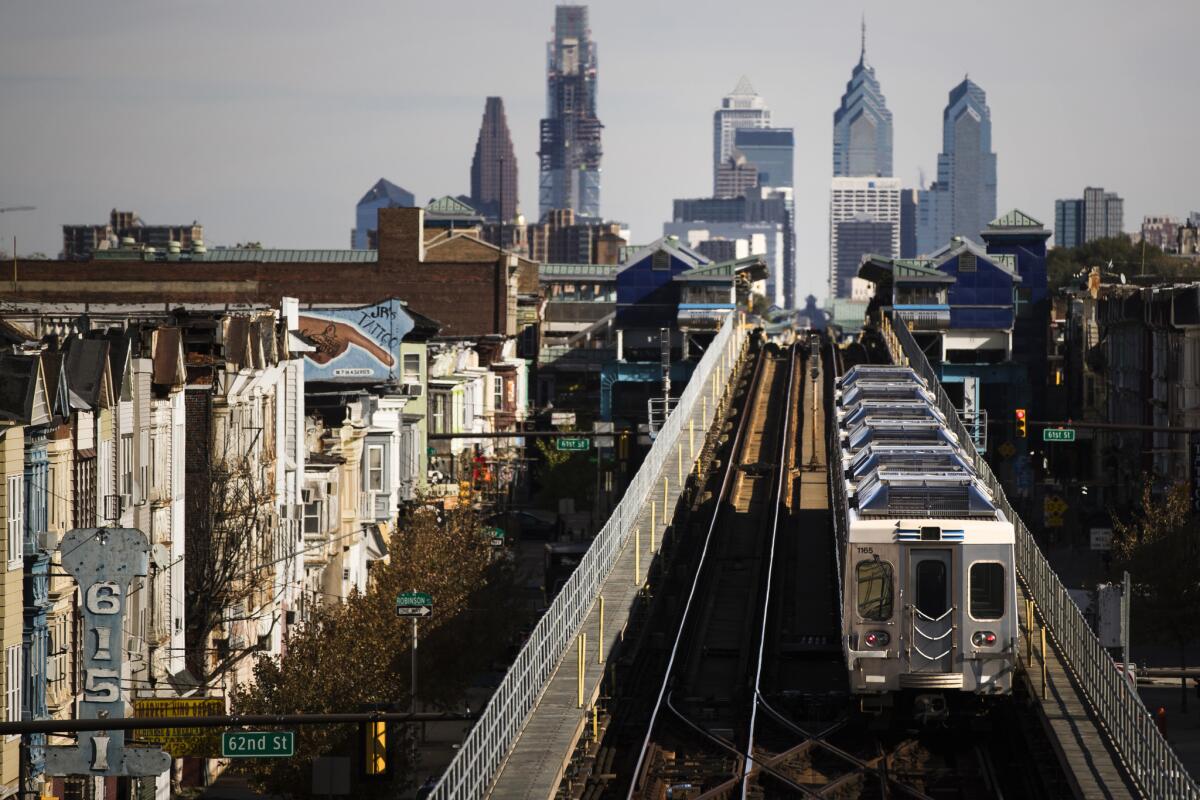Philadelphia transit strike ends with a tentative deal

- Share via
Reporting from PHILADELPHIA — Philadelphia’s weeklong transit strike is over.
The Southeastern Pennsylvania Transportation Authority and the union representing about 4,700 transit workers announced a tentative agreement early Monday.
SEPTA Board Chairman Pasquale Deon said in a statement that the deal that provides “wage increases, pension improvements, and maintains health care coverage levels while addressing rising costs.”
The five-year deal is still subject to ratification by union members and must be approved by the SEPTA board.
Officials said subway service would likely be the first to return, and that some bus service could be available in time for Monday’s evening rush hour, but that it usually takes 24 hours for full service to return.
The workers with SEPTA walked out after midnight on Tuesday over issues including pension benefits and the amount of time off given to drivers between shifts.
The result has been traffic gridlock at morning and evening rush hours; jammed and delayed regional rail service and higher absenteeism at the city’s schools. SEPTA provides rides for nearly 60,000 public, private and charter school students.
The troubles continued Monday morning despite the new deal, as commuters faced crowded roads and up to 30-minute delays on all regional rail lines due to signal problems.
“We know that the strike has caused a significant hardship for thousands of our riders,” Deon said. “We sincerely regret this disruption to transportation throughout the City of Philadelphia and the region. We thank riders for their patience under these extremely challenging circumstances.”
Philadelphia Mayor Jim Kenney thanked the union and agency for reaching a settlement and cited the efforts of his staff, the governor, state Rep. Dwight Evans and Congressman Bob Brady during the difficult negotiations.
“I am thankful that the Transport Workers Union and SEPTA have reached a settlement, and I am very grateful to residents and commuters for their patience over the last six days,” Kenney said.
Some officials were concerned that the strike could dampen voter turnout if it continued through election day. Transport Workers Union local president Willie Brown said he was more concerned with getting an agreement.
“It really wasn’t a factor with me,” Williams said about the election-day concerns. “We were trying to get a contract, and that’s what we did.”
The city of Philadelphia had filed a motion in state court seeking an injunction to temporarily halt the strike so residents could get to the polls. The court had been expected to hear the city’s motion Monday.
Pennsylvania is a battleground state, and the vote in overwhelmingly Democratic Philadelphia is crucial to Democratic presidential nominee Hillary Clinton as she battles Republican Donald Trump.
The walkout was the ninth by the transit union since 1975. The last one, in 2009, lasted six days, but some have lasted for weeks.
ALSO
Colorado poised to make history with Latinas in charge of state Legislature
More to Read
Sign up for Essential California
The most important California stories and recommendations in your inbox every morning.
You may occasionally receive promotional content from the Los Angeles Times.










